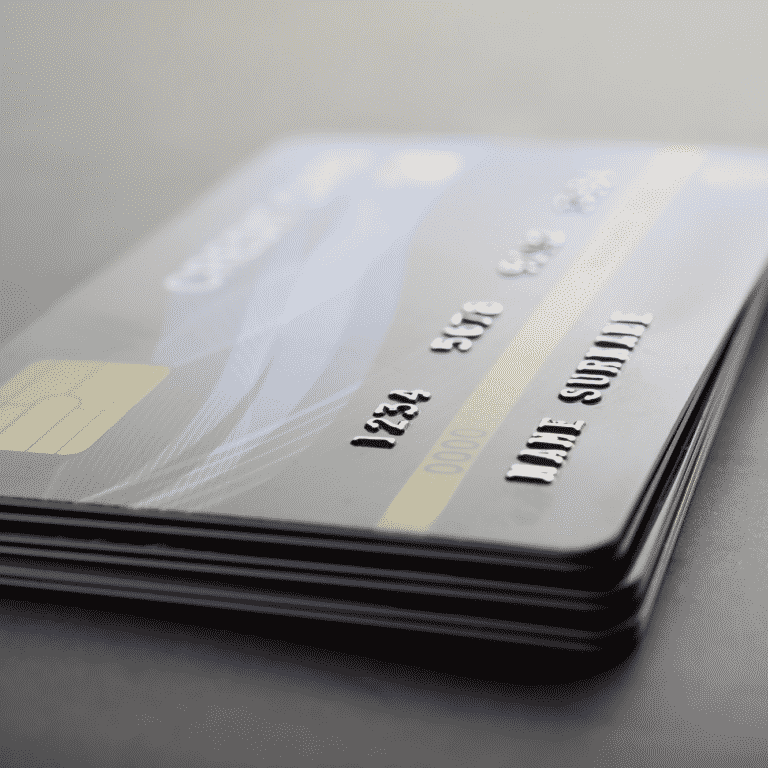How Do Credit Cards Work? Are They Worth It?
Credit cards are a dominant form of payment, but how do they work exactly? Based on the enormous debt piled up on credit cards, many users don't seem to know the answer to that question.
You'll find famous names such as Chase, American Express, and Capital One promoting cashback, travel points, dining credits, and more to entice you to use their card for everyday purchases. Credit card issuers promote the supposed prestige of shopping with credit cards, but for consumers, opening the bill can be quite sobering.
The Consumer Financial Protection Bureau estimates that Americans spend approximately $120 billion per year in credit card interest and fees–about $1,000 per household. Further citing the depth of the problem, Debt.org writes that the average American family has over $5,000 in credit card debt and at least 2.7 cards.
How does this convenient way of spending work, though? Keep reading to learn more about how credit cards work to make the best financial decisions for you.
What is a Credit Card?
Credit cards are one of the most popular forms of payment for goods and services. The thin rectangular piece of plastic or metal serves as a payment option for buyers to borrow funds for purchases today and pay them back later.
In addition, credit cards allow cardholders to borrow money through cash advances at the ATM or a bank teller and transfer money from one credit card to another.
This convenient form of payment allows buyers to keep more money in their pocket and earn rewards when used correctly. Let's look a little closer at the mechanics of credit cards.
How do Credit Cards Work?
Credit cards allow users to make purchases and pay bills. First, a buyer gives the credit card to a merchant, who electronically contacts your credit card issuer to authorize the transaction based upon the credit card terms. Then the bank (credit card issuer in most cases) applies the transaction to your credit card balance.
Credit cards are processed over the internet using payment processing companies such as Mastercard, Visa, American Express, and Discover, which charge sellers a fee for processing transactions. These global technology companies provide a platform to connect consumers with businesses to transfer money and make electronic payments for products and services. In addition, they authorize, clear, and settle payment transactions for various credit card issuers.
How do Credit Card Companies Make Money?
The credit card issuer makes money by charging you interest for loaning you money. There is a 21-day grace period where no interest is charged. If you don't pay the debt back by then, you will incur interest fees.
The terms determine the interest you agreed to pay when you opened the account. The balance reflects an interest rate based on the annual percentage rate or APR. The rate fluctuates as the prime interest rate changes.
Who Needs a Credit Card?
Nobody “needs” a credit card. It should only be used by those that have the means to pay the bill on time. If you try using credit cards without a solid financial plan and payment history, you could waste tens of thousands of dollars over a lifetime.
When considering a credit card, you must consider the pros and cons. Then, build solid money habits to ensure you stay on budget and pay the balance in full each month.
Credit Card Pros
- Help you build credit. Credit cards help you establish a reliable history of paying off debt, which builds your credit score. Each month you carry a balance and make a payment; the credit card issuer will report to the agency that they have given you credit and you made an on-time payment.
- Convenience and Flexibility. Credit cards make it easy to pay for purchases without worrying about cash. Virtually all online merchants only take credit cards. You don’t have to worry about unauthorized charges.
- Buy now. Pay later. Credit cards extend your purchasing power by paying for your purchases later. All credit cards defer interest on purchases for 21 days, and many cards come with 0% introductory APR. These strategies help keep cash in your pocket longer.
- Rewards. Earn a portion of your purchase back with cashback, stocks, travel points, and cryptocurrency. Get the card that rewards you with something you like. For example, earn 1-10% cash back to put more money in your wallet or plan your vacations with travel points. It’s a great way to save money if you’re paying off the credit card balance.
- Place cash on hold. You’ll need a credit card to pay for incidentals when renting a hotel room or car. This method allows you to put money on hold without tying up your bank account.
Credit Card Cons
- Overspending and debt. Credit cards make it easy to spend money and worry about it later. This cycle can lead to debt and an ongoing rotation of paying more for purchases than they’re worth. Credit cards aren’t extra money. You have to have a plan for paying it back.
- High-interest rates. Credit cards can be expensive when not paid within 21 days. Interest fees range from 9-26%, depending on the card and credit score. You could spend more interest than your rewards.
- Caps on rewards. Most credit card issuers limit the rewards you can earn with purchases. It would be best if you read the fine print to understand the actual value of the rewards.
- Harmful when not used responsibly. Credit cards can make or break your credit score. Missed payments and high credit utilization can negatively impact it and lead to collections accounts or lawsuits.
Alternatives to Credit Cards
Not everyone needs a credit card. Some people may not be able to reliably pay back the balance on time, while others may simply prefer to always pay with their own money. There are always alternatives:
- Cash. Cash is an excellent alternative to credit cards because it ensures you only spend what you have. For example, try saving for big purchases with a sinking fund.
- A debit card. Debit cards offer the convenience and ease of credit cards while utilizing money in your checking account to make purchases. They use the same payment processing companies as credit cards; some come with cashback. In addition, you’ll have peace of mind with chargebacks and fraud protection. Just keep in mind debit cards require you to have a qualified bank account.
- A pre-paid card. Consumers put money on pre-paid cards in advance of making purchases. These cards utilize the same payment processing companies as credit cards and do not require you to have a bank account.
- Personal loan. Consider a personal loan if you don’t qualify for a credit card with low-interest rates and are planning a big purchase. This way, you'll know your repayment schedule and avoid overspending and excessive fees that bump the purchase price over time.
Good Money Habits for Credit Cards
Here is a list of solid money habits when using credit cards:
- Use a budget. Make a plan for how much you bring in and spend each month. You need to determine how much money is enough for your lifestyle. Don’t go shopping without a dollar amount in mind. Learn to stick to the budget because you don’t want to carry a balance on the monthly credit card.
- Minimize expenses and live below your means. Plan all of your purchases and learn to use sinking funds to save. As you learn to delay gratification and spend less, you’ll use less credit and have less debt. Over time you can save more and reach your financial goals sooner.
- Build an emergency fund. Don’t wait for life to happen, and don’t plan to use credit cards for emergencies. Unexpected expenses will occur. Set a goal to save at least 3-6 months of expenses. You’ll save hundreds on interest from not using a credit card.
- Automate savings and investments. Learn to pay yourself first with automatic investing. You deserve it. No matter what, choose to save for your future. When you automate it, you don’t have to think about it and can’t spend it. This habit will force you to stick to the budget.
The Bottom Line
New users are often drawn to credit cards due to their enticing rewards or widespread popularity. However, credit cards can make or break your financial future. Consumers must understand that credit card issuers are businesses looking to make money because nothing is free.
You’ll never have too much money. Take time to build your financial plan and a budget. Then, start investing. If you cannot pay the balance in full each month, the card will likely cost you more than you’re earning in any rewards, and you need a new financial plan.
This article originally appeared on Wealth of Geeks.







